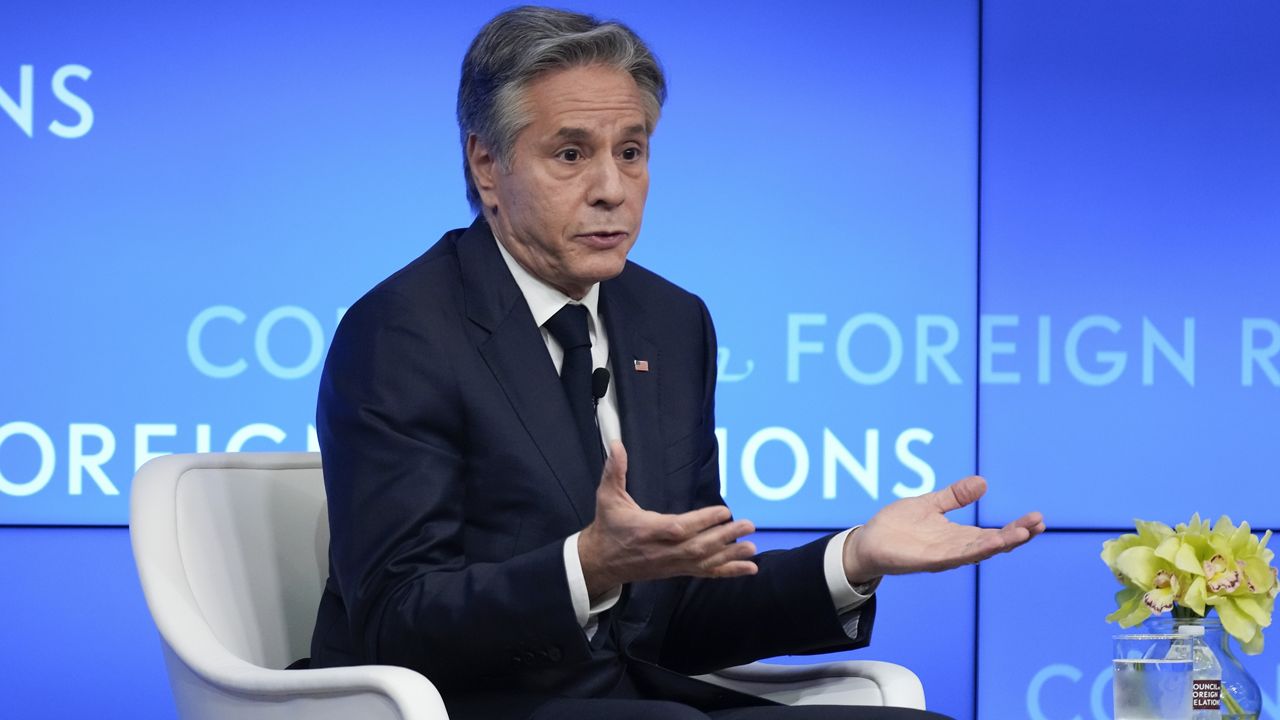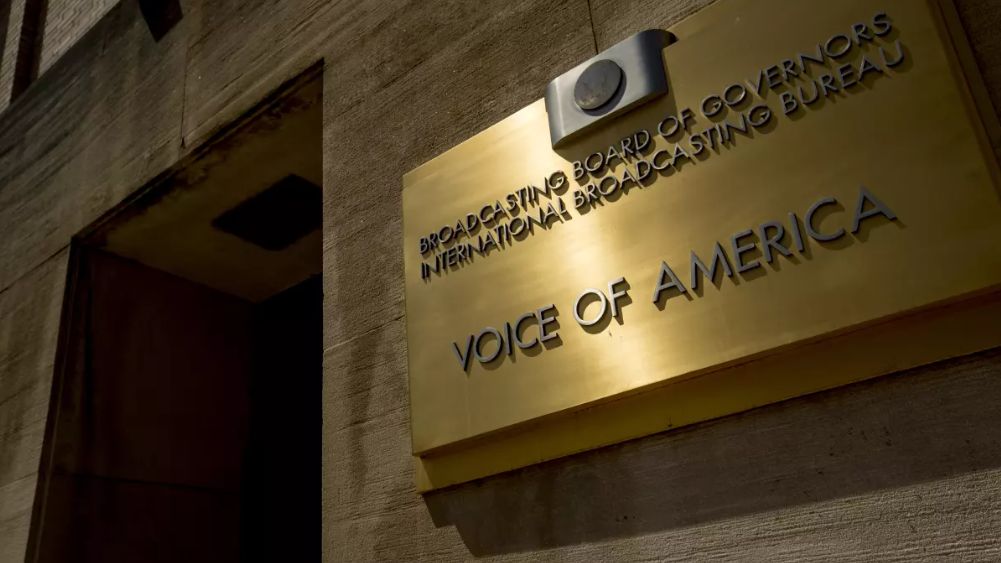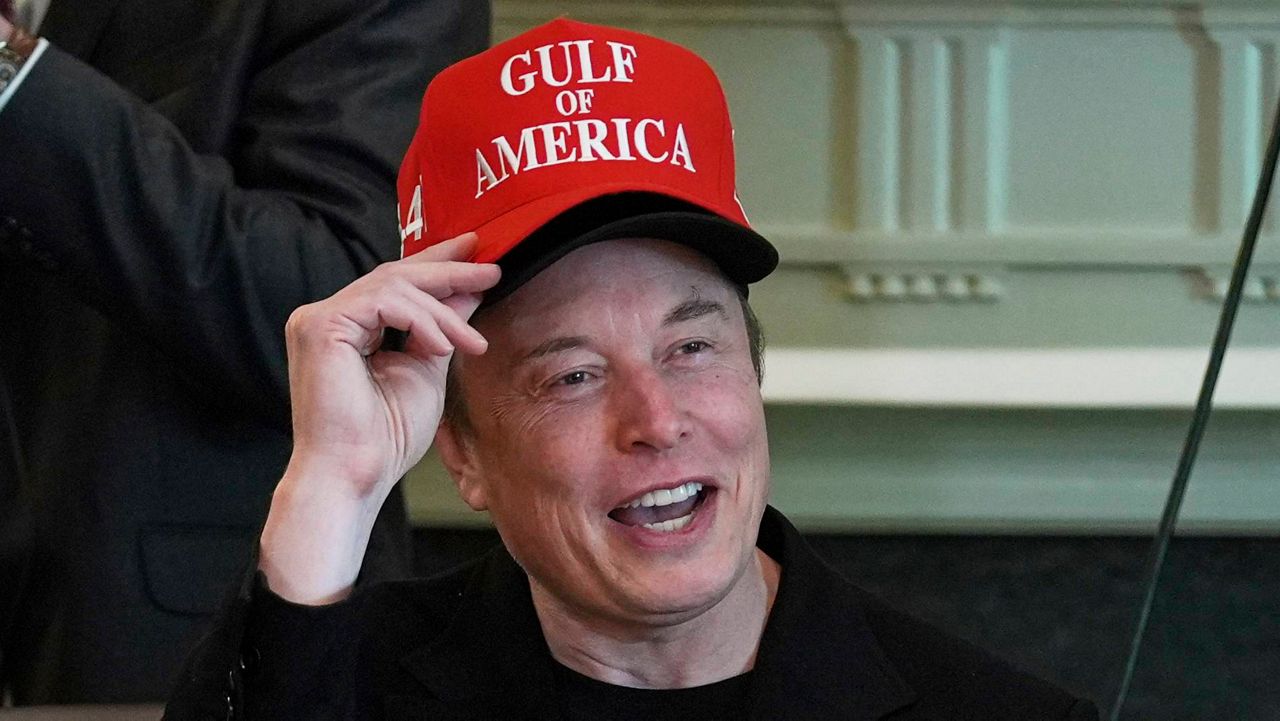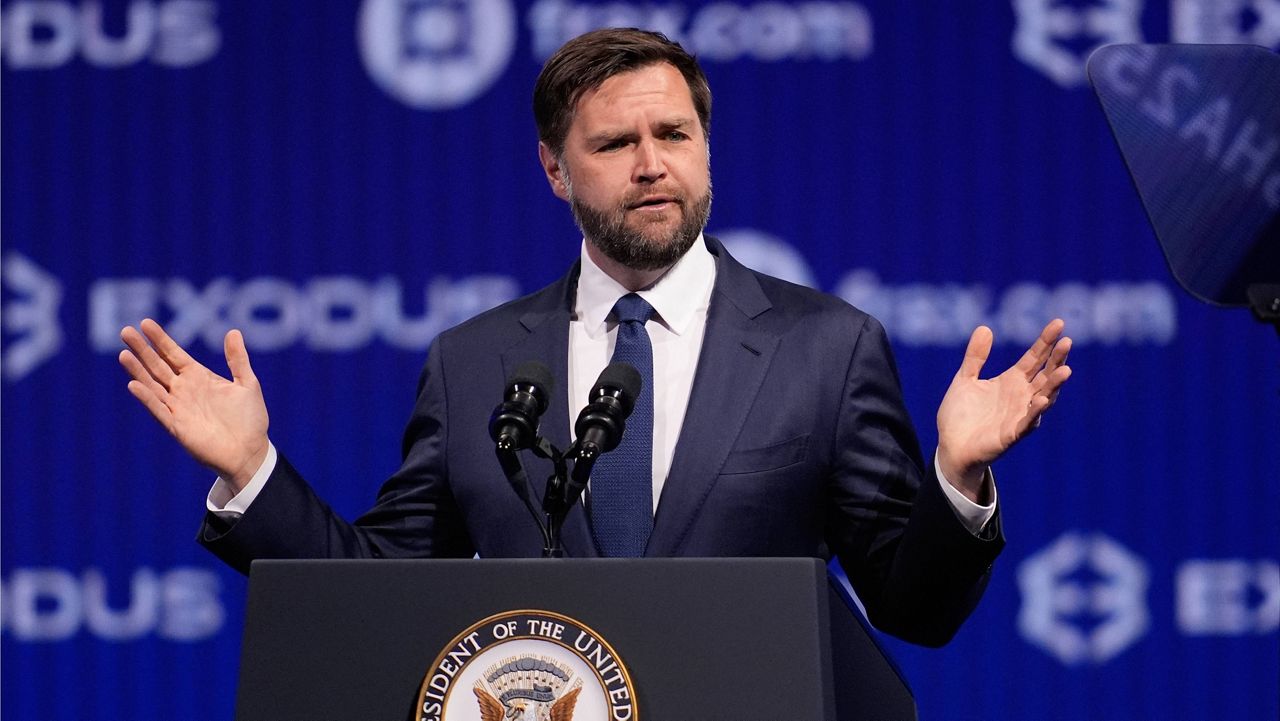While discussing the Biden administration’s approach to foreign policy on Wednesday, Secretary of State Antony Blinken said the world is at an “inflection point” that comes around “every few generations,” adding decisions made now will shape the next few decades.
The secretary touched on the war in Ukraine, recent internal developments in Russia, Taiwan and America’s relationship with China, in an hour-long conversation at the Council of Foreign Relations in New York City.
“The post-Cold War era is over and there is a profound competition underway right now to shape what comes next,” Blinken said adding there was “a strong consensus” coming out of the Cold War that major power competition was over, and rivals would be working together in an “integrated global economy.”
“I don't want to minimize it. We did have, in many ways, an era of extraordinary progress,” he said.
“But then of course, we've seen the emergence of major disruptors that are now, I think, pushing us past that era,” Blinken said mentioning China and Russia.
When it comes to the recently tense relationship between the U.S. and China, the secretary said “I don’t think there is a finish line.”
“We have to find a way to coexist and coexist peacefully,” he said, adding “neither of us is going away.”
Blinken traveled to China earlier this month and emerged from a meeting with Chinese President Xi Jinping saying the two agreed to “stabilize” U.S.-China ties. However, they did not agree to resume military-to-military communication, according to Blinken, which is something the U.S. considers crucial to avoid miscalculation.
Just days later, tensions boiled over when President Joe Biden referred to Xi as a “dictator” at a campaign reception, prompting swift blowback from China.
Blinken said Wednesday that China believes the U.S. is trying to hold the country back economically and globally, which he vociferously denied.
“It’s also not in our interest to do that,” he said, mentioning U.S. trade with China last year reached “the highest level ever.”
"What is in our interest, he said, is to not allow them to get technology that they may turn around and use against us," he added.
Blinken did not budge when pressed by moderator Richard Haass, CFR President, about the United States’ stance on defending Taiwan if China were to invade, saying “we continue to be guided by the One China policy,” which recognizes Beijing as the government of China but allows informal relations and defense ties with Taipei.
Biden has said multiple times the U.S. would help defend Taiwan militarily in such a situation, leading White House staff to quickly clarify the U.S. has not changed its long-time policy of “strategic ambiguity,” which aims to keep China guessing how the U.S. would respond if there was an invasion.
Blinken also addressed recent developments in Russia over the weekend in which the head of the Wagner Group, Yevgeny Prigozhin, rebelled against Russian President Vladimir Putin. Prigozhin quickly called off the revolt, but the events marked the greatest challenge to Putin’s power in more than two decades.
“Putin has a lot of new questions that he has to answer,” Blinken said on Wednesday, adding he doesn’t think we’ve “seen the last act,” in this internal conflict.









